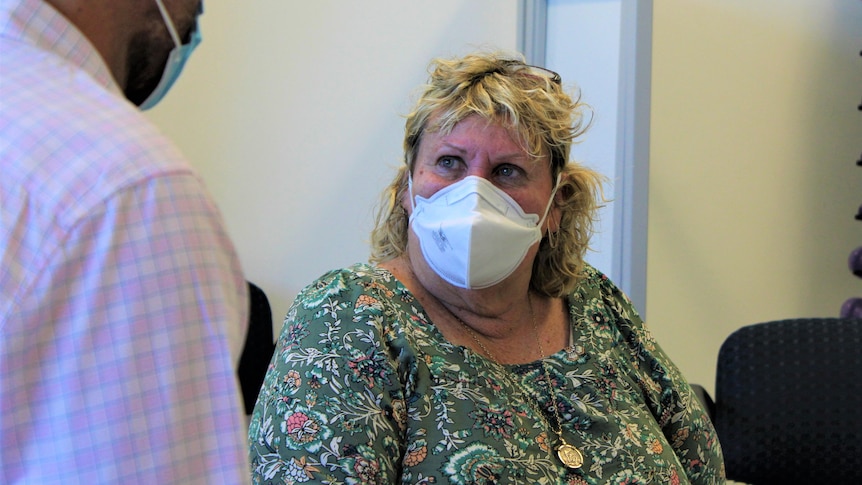Peta Weeks is one of the 3.6 million Australians living with chronic pain.
She was seriously injured when she crashed her motorcycle in 2019 and about 18 months later, her arm was amputated.
“I ended up with five nerves avulsed from the spine, fractured pelvis, coccyx, rib,” Ms Weeks said.
She said since the amputation, the pain has overtaken her life.
“Sometimes it’s overbearing; I can’t handle it,” Ms Weeks said.
“It’ll start in my hand that’s not there, my phantom hand, and go up to the elbow.
“It’s really hard when I’m around friends, they see me cringe and I’ll put my head down and just try to hide it. I try not to show it.”
Ms Weeks has frequent appointments at a specialized pain management clinic on the Gold Coast, where she now practices mindfulness and mind mapping to help cope with the pain.
“I’ve tried a lot of medications; no medications work, they just make your mind foggy,” she said.
“But doing the mindfulness, mind mapping, all the natural things, does actually help. It’s like trying to calm the mind down.”
Specialist pain physio
Darren Doherty is a pain physio specialist at the Gold Coast Interdisciplinary Persistent Pain Centre, where a team of pain specialists, psychiatrists, allied health workers and nurses help Ms Weeks and other chronic pain sufferers.
Mr Doherty is Queensland’s first specialist pain physio and one of five in Australia.
He said their aim is to improve the quality of life for people living with chronic pain, despite the pain.
“Quite often our patients have been on that journey to try and find the fix and that hasn’t occurred,” Mr Doherty said.
“By continuing to go on that journey of that ‘fix’ for their pain, sometimes it can actually hinder more than help.
“So, we refocus — how can we manage pain better, how can we achieve goals so they can engage living again?”
He said a big part of his role was helping patients understand their pain.
“From a physio perspective, we look at helping to educate patients about their pain and giving them a reason behind the symptoms that are occurring for them,” he said.
“We know from the research, when you’re more educated about pain, it can help with the pain.”
Removing stigma and improving accessibility
Mr Doherty highlighted the importance of the Australian College of Physiotherapists adding a pain specialisation.
Chronic Pain Australia vice president Nicolette Ellis said the not-for-profit organization has welcomed specialty and said she would like to see the same in other health professions.
“We see a strong stigmatization from not only health professionals but also the community,” Ms Ellis said.
“I think that’s just really a lack of awareness and understanding of what the condition is.”
Ms Ellis said knowledge and education were key for people living with chronic pain.
“Many people who live with chronic pain are sometimes led to believe it comes from their head,” she said.
“It is a chronic disease and is a condition of the nervous system and immune system.”
She said treatment could be different for all patients and could include medication, topical cream, complementary therapies and supplements.
.
